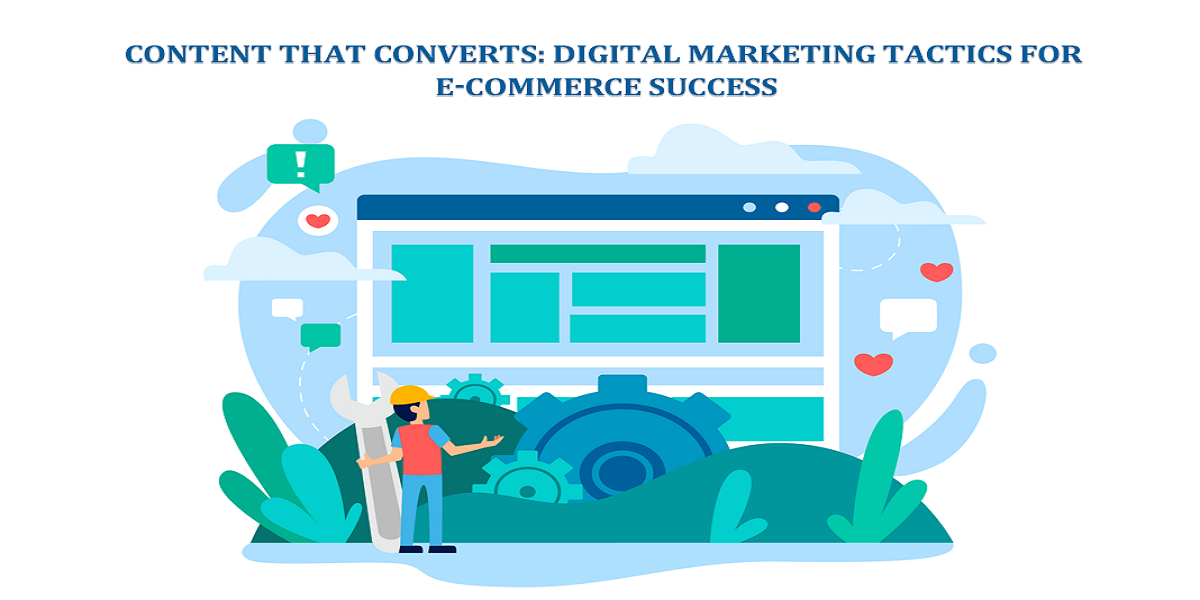
Benefits of ERP Software for Small Businesses
- By Shantell Carman
- 23-03-2023
- Software
One of the first questions on your mind, if you're thinking about using an ERP system, is undoubted, What are the benefits of ERP software for small businesses?
An Enterprise Resource Planning (ERP) system is a comprehensive system that manages every aspect of an organization, including planning, production, purchasing, distribution, sales, customer support, and accounting.
If you are considering investing in ERP software for your company, then read this blog post to understand the advantages of adopting this system in your small business.
What is ERP software?
ERP may be considered a system that manages essential business operations needed to run an organization, which clearly defines ERP. Finance, human resources, manufacturing, supply chain, services, and procurement are a few of these processes. In essence, ERP combines and simplifies these operations highly and effectively. It is frequently viewed as the organization's record-keeping system.
The growing adoption rate of ERP software demonstrates its importance to enterprises. According to G2 research, the market for worldwide ERP software is expected to reach US$78.40 billion by 2026, growing at a CAGR of 10.2% between 2019 and 2026.
ERP installation entails a total corporate change beyond merely installing new software. ERP systems need adjustments to people's operations, new workflows and procedures, and a culture open to change. Organizations have the chance to evaluate and improve their business processes through the deployment of ERP, which may result in considerable increases in productivity and efficiency.
So, to guarantee that the system is implemented successfully and that staff can become used to the new procedures and workflows, successful ERP installation involves a mix of technical abilities, project management competence, and change management knowledge.
How are ERP systems transforming businesses?
Even minor efficiency improvements may significantly influence a business as it expands. Particularly small- to medium-sized firms should take note of this. When productivity rises, the momentum created may push a company to the fore, while rivals that don't follow suit risk failing.
Multiple research studies demonstrate the importance of effective reporting. The Aberdeen Group said in 2016 that 96% of the top businesses that saw growth have access to personalized information, allowing them to improve their performance in real time. These businesses' profitability increased by 10% on average during the previous two years due to the benefits of ERP software for small businesses.
It could be time to consider other possibilities if you manage a small business and find it challenging to meet your customers' expectations or spend more time on administrative tasks than on strategic expansion.
Using ERP technology may expand your access to data, help you better manage customer contacts, boost productivity, enhance communication, and—most importantly—enable data-driven decision-making. By implementing ERP technology, your small business may position itself for success and growth.
These are five ways that ERP helps in the modernization and transformation of a company. Such as:
It allows businesses to become more data-driven
By utilizing ERP, management may access data gathered from all important organizational areas, eliminating operational impediments. A cloud-based ERP system allows data centralization into a single, accessible area, thus enhancing accessibility. As a result, detailed information on numerous areas, like the supply chain and employee performance, becomes easier to understand, enabling improved decision-making.
Decision-makers may identify chances for improving all aspects of a business, which can influence both internal and external operations, by analyzing data. Using data from an ERP system may help discover a wider variety of improvement possibilities, such as reducing the staff in a warehouse that processes fewer orders while expanding it in another that processes more.
ERP supports recruiting and holding talent
One of the benefits of ERP software for small businesses that it may completely transform firms is talent management. 71 percent of CEOs feel that digital transformation makes it simpler to recruit and retain people, according to the SAP Digital Transformation Executive Survey.
An ERP system can enable data analysis and closer attention to workers' actions by offering visibility into employee productivity and performance, perhaps uncovering common problems that hinder their success.
Most business owners want to make their employees' lives easier by removing barriers preventing them from doing their jobs as effectively as possible. If bad performance continues despite these attempts, the problem can be with the employees rather than outside disturbances.
Enhances reporting
Slow feedback loops are no longer relevant in today's corporate environment. Modern enterprises demand real-time decision-making capabilities, even though they would have been sufficient a few decades ago.
Businesses can keep an eye on product components, production, packing, shipping, and other processes thanks to real-time reporting capabilities in ERP. This increased visibility can reduce the danger of compliance errors and their expensive repercussions. Companies may determine what needs to be improved and evaluate the potential impact on other processes of these changes.
Promotes Business Process Reconsideration
As previously mentioned, setting up an ERP system offers organizations access to real-time data, empowering them to make wise decisions. Companies may reinforce their structure by improving staff engagement, shipping, inventory control, and customer service. A business may function better by eliminating pointless and repetitive work, cutting expenses, and maintaining product quality and customer happiness.
However, the benefits of ERP software for small businesses and the requirement to modify long-standing practices and embrace standard business procedures call for careful management, particularly when switching from platforms that have been highly customized for particular objectives and individual workers' preferences. Change management is useful in this situation.
Modernizing IT Infrastructure using ERP
A new ERP system that a company introduces will almost definitely be a cloud-based solution. A company's IT infrastructure is essentially upgraded to the most recent technology when switching to a new ERP system since ERP impacts all business areas and is the cornerstone of IT operations.
ERP implementation gives companies the data and visibility they need to restructure their operations, including minimizing shipping costs, lowering staff churn, and eliminating compliance difficulties. This transition goes beyond merely purchasing the newest software; ERP installation helps firms become more current and vibrant.
What are the benefits of ERP software for small businesses?
Although the theory behind an ERP system is simple—integrating all departments and their data into one system—the benefits of putting such a system in place are substantial. The following are some of the most important advantages that an ERP system may provide:
Remote workforce cooperation and administration
Businesses using basic accounting software had to admit that their existing procedures weren't up to the increased demands of the modern work environment due to the shift to remote employment. As a result, these companies moved quickly to find different alternatives.
These organizations can now rapidly evaluate data, make required corrections and remotely close books as benefits of ERP software for small businesses. Moreover, the ERP system's checklist feature simplifies the procedure and guarantees a flawless experience.
Complies with legal regulations and accounting standards
Companies in any business may face difficulties due to rules and regulations. Older on-premise systems were not designed to manage the growing duty of organizations to recognize revenue in a usual manner as a result of changes to revenue recognition legislation.
Companies can adjust to the regulatory structure due to the eERP solutions' flexibility and automated upgrades as benefits of ERP software for small businesses. Due to unavoidable changes, businesses must arm themselves with the required software to keep up with the unpredictable nature of the global economy.
Encourages rapid response times
Companies that employ various systems rely on IT assistance to gather data and produce reports, which causes data gathering to be delayed and causes obsolete information to reach decision-makers. To help workers make choices more quickly, easily, and accurately, ERP offers role-based dashboards that provide them rapid access to real-time data.
Minimizes operational risk
With cloud ERP, approval procedures are linked to the accounts payable, procurement, and other financial activities. To guarantee data accuracy and that it is in the correct hands, access control features that are based on user roles are added to this.
Monitors customer, project, and unit economics
Unit economics enables organizations to examine the profitability potential of product lines and make required modifications by routinely evaluating direct revenues and expenses per unit. It is frequently tricky for businesses without integrated systems to respond to such questions accurately and decide how to divide resources between products X and Y. These visibility deficiencies may significantly impact profit margins.
Cloud ERP gives companies the visibility to distinguish between products with positive or negative margins. This allows them to forecast business growth and profitability accurately.
A more effective sales team
Your sales staff can communicate with prospects and customers more successfully and deliver faster and more accurate quotes and estimates by accessing all the required information. This leads to a more productive sales process.
Helps businesses grow and adapt
Spreadsheet- or basic accounting-based businesses typically require more comprehensive solutions as they expand and become more sophisticated. The need for a more comprehensive enterprise system sharply rises as companies branch out into new areas, create subsidiaries, and handle different currencies.
Smaller businesses can get by with rudimentary systems and spreadsheets, but cloud ERP may enhance their existing company management procedures and offer them a scalable solution for the future.
Examples of ERP in different sectors
Stock Photos
Businesses need accurate, current information and effective procedures to stay competitive and profitable across various sectors, from automotive to wholesale distribution. Different industries depend on the benefits of ERP software for small businesses, such as:
Utility businesses
Utilities must continually evaluate their capital assets to replace outdated infrastructure and satisfy future service demands. Prioritizing big asset investments would be difficult and prone to mistakes without an ERP system.
The benefits of ERP software for small businesses are also anticipating spare parts, another major problem they confront. Not having the proper components during an outage might result in serious customer service difficulties. On the other hand, having too many spare parts results in higher expenses and outmoded inventories.
Wholesalers
Timely delivery is essential for wholesalers, importers, direct retailers, and 3PL/4PL companies. These businesses want to lower distribution costs, flip over inventory more often, and accelerate the order-to-cash process. These goals must be met by integrating capabilities for inventory management, purchasing, and logistics, as well as by using automated procedures that are specially designed to meet their demands.
Service companies
To balance service delivery promises with financial stability, service organizations need reliable, real-time mobile ERP systems, including accounting, tax, engineering, IT, legal, and other professional service firms.
The success of professional services depends on the capacity to keep to timelines while managing project profitability, resource usage, revenue recognition, recurring revenue goals, and expansion prospects.
Manufacturers
ERP and supply chain solutions are used by discrete, batch, and continuous process manufacturers to manage asset utilization, handle customer returns, fulfill product quality goals, and more. Manufacturers may also achieve end-to-end inventory control by keeping track of stock movements, recognizing top and underperforming items, and managing procurement more effectively.
Retail business
With the integration of e-commerce and other sales channels with brick-and-mortar operations, the retail industry has seen a substantial transition recently. Integrated data is necessary for identifying, configuring, purchasing, and shipping products using self-service options. Retailers may enhance online conversion rates, raise average order values, lower cart abandonment rates, and increase customer lifetime value using the benefits of ERP software for small businesses.
Conclusion
Using an ERP system might ultimately result in higher productivity and business expansion. A system that enables the swift and effective execution of projects from the initial inquiry to the final shipping is crucial for small producers. An ERP is a comprehensive solution that enables companies to manage every facet of their operations efficiently.
Selecting and implementing an ERP system can be complex, with high stakes. It's not a task for those who are easily overwhelmed. Make sure you choose the right Enterprise Resource Planning system to get the benefits of ERP software for small businesses.
Companies demand ERP systems that are more capable of keeping up with the speed of the digital revolution. ERP systems are anticipated to offer increasing automation, real-time visibility, and data analytics capabilities to support organizations in making smarter, data-driven choices as they depend more on technology to function and compete. The need for scalability, agility, and flexibility drives the desire for cloud-based ERP solutions that readily adapt to changing company demands and shifting market conditions.
Recent blog

How NASA Uses Web Design to Optimize User Experience in Space Control
Web Design | 03-05-2024
Content that Converts: Digital Marketing Tactics for E-Commerce Success
E-commerce | 02-05-2024.png)




